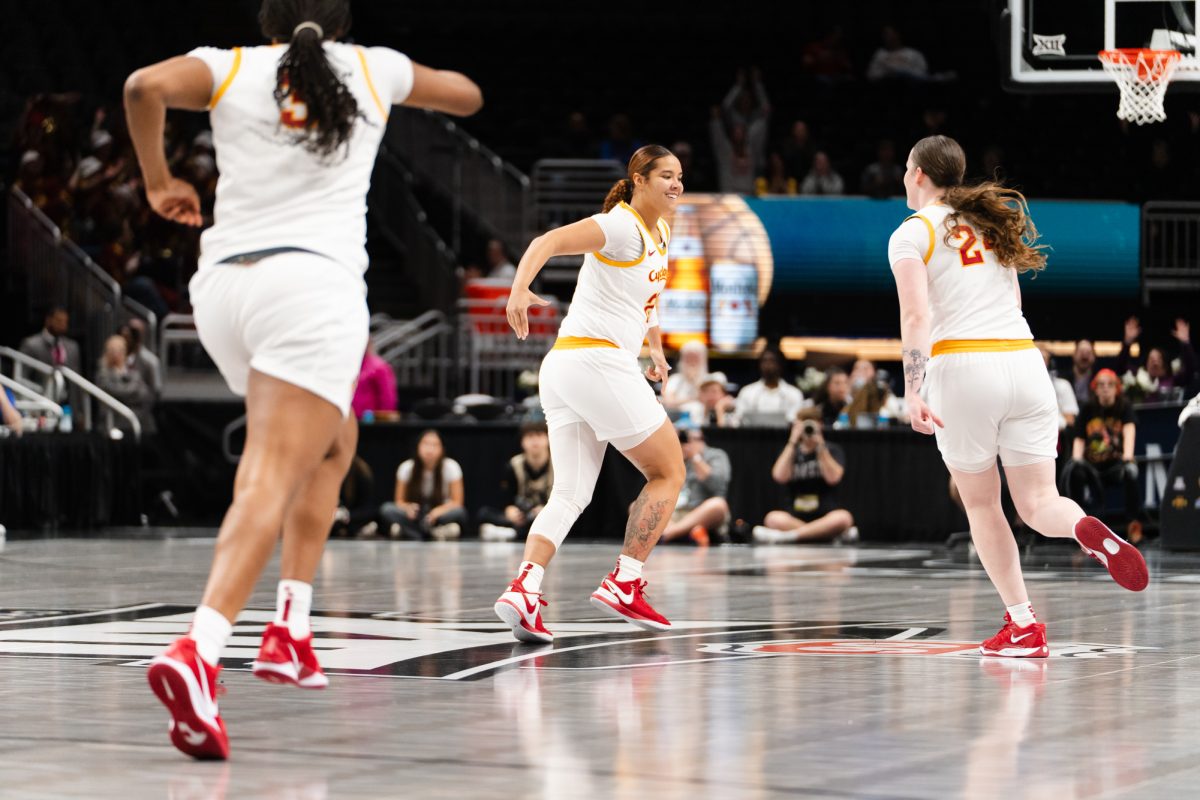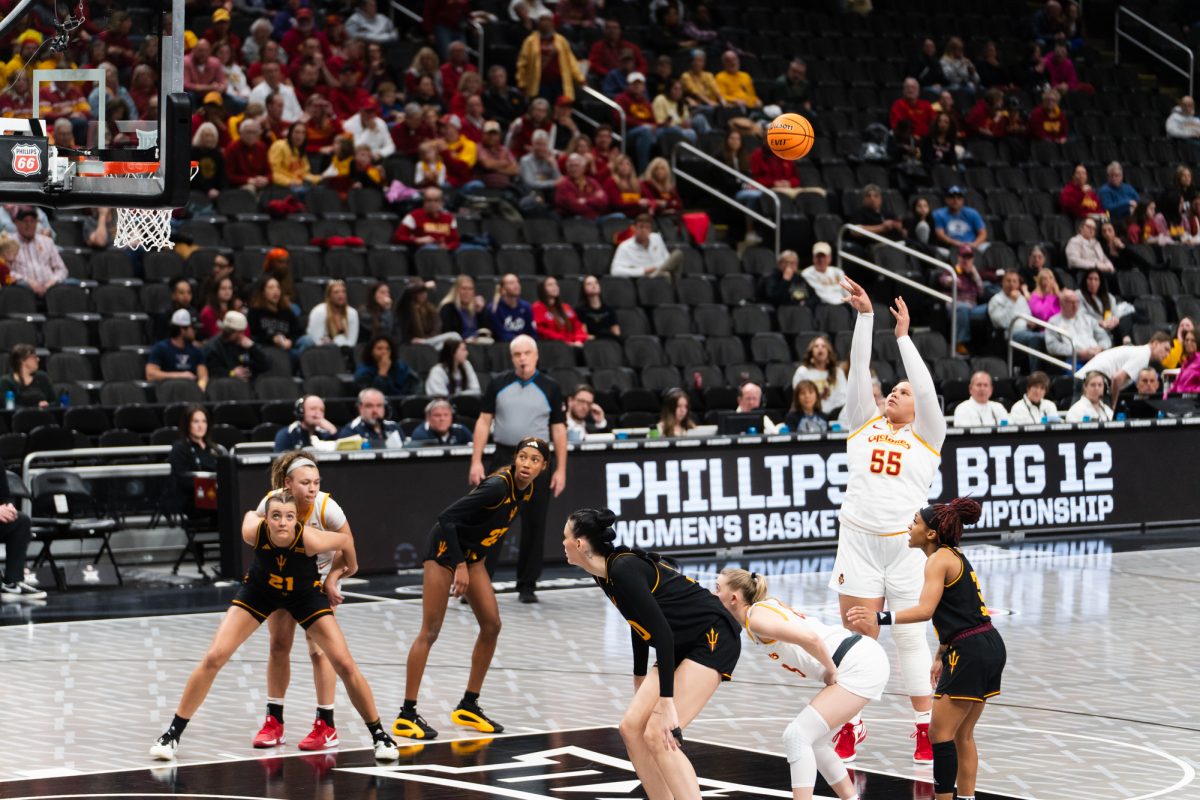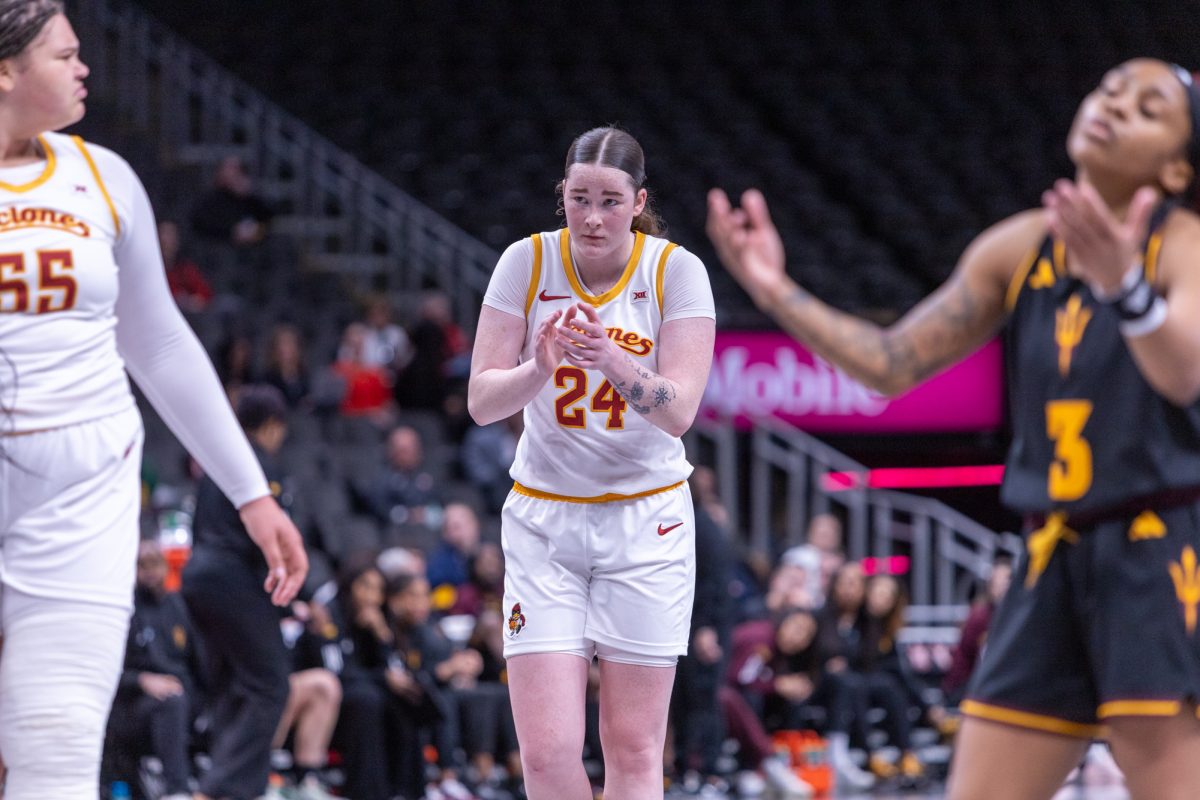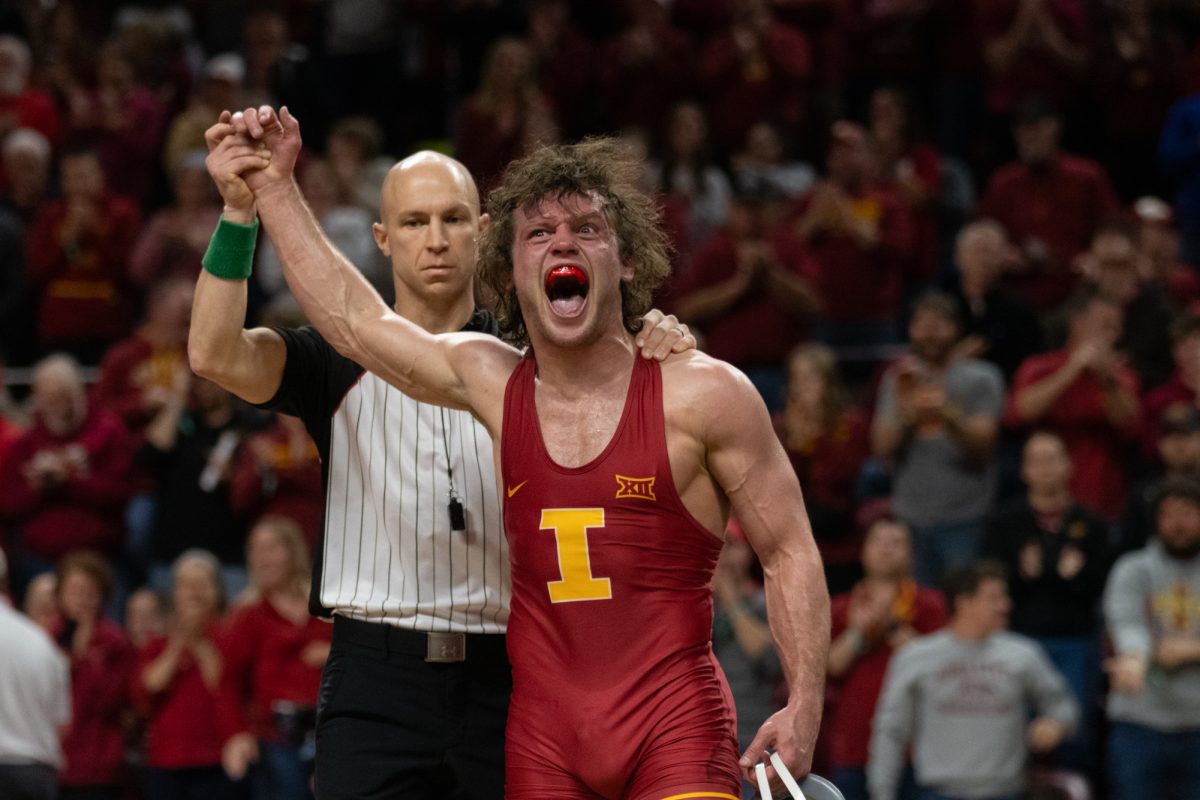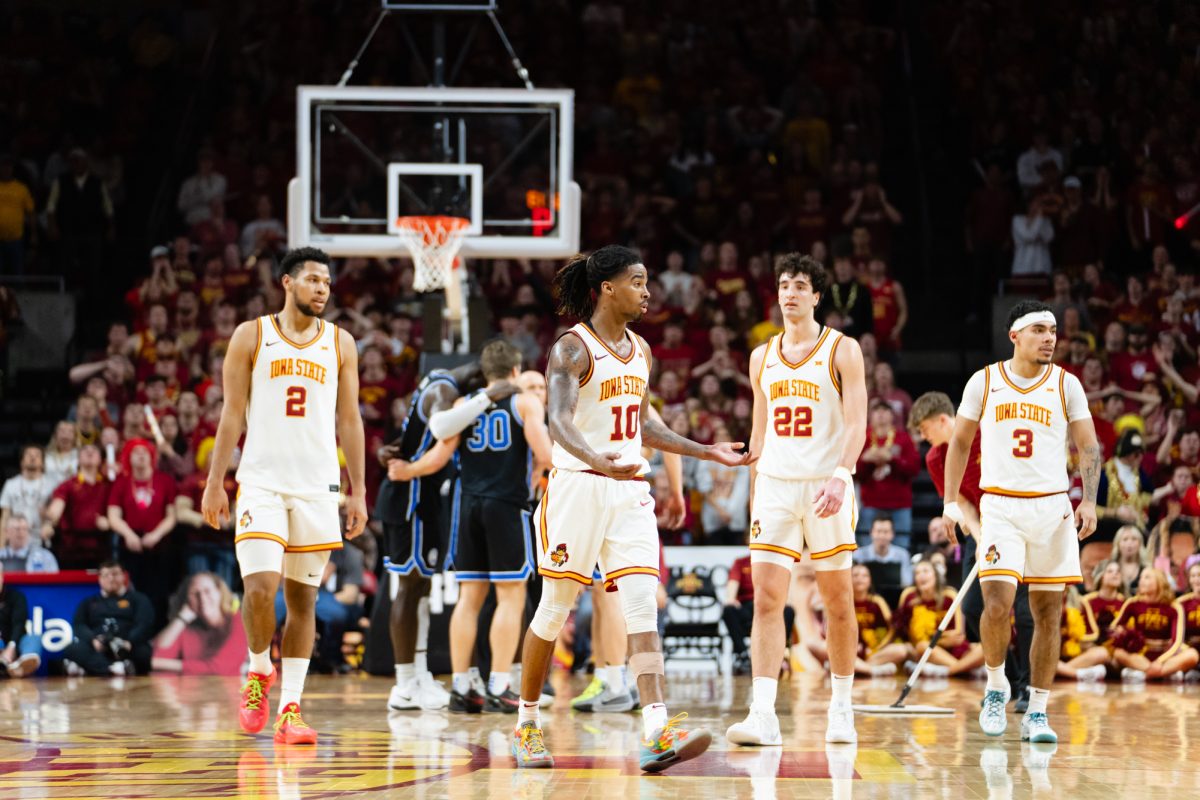Minority leaders: We’re being silenced
February 3, 1997
A diversity forum appropriately titled “Campus Climate” quickly turned hostile Friday afternoon in the Sun Room of the Memorial Union.
Sparked by recent conflicts between campus minority leaders and Iowa State administrators, audience members pressed President Martin Jischke for evidence backing his statements that the university is committed to diversity.
The first two rows of the audience were filled with supporters and members of The September 29th Movement, who wore gags to protest the sanctions given to organizers of an unauthorized Nov. 5 town meeting hosted by The Movement in Beardshear Hall.
Students near the back of the audience held signs reading, “Free the Beardshear 8,” “Students for the Boisterous Expression of Free Speech” and “Are Our Rights Protected?”.
About 250 students and faculty attended the forum, which began as a moderated panel discussion between Jischke; Bill Woodman, president of the Faculty Senate; Carla Espinoza, vice president of human resource services; and Rafael Rodriguez, director of minority student affairs.
Rodriguez, in his opening remarks, likened the diversity climate on campus to a “sinking ship,” and hinted that he does not approve of tactics such as diversity curriculum requirements as a way of dealing with broad issues.
“I don’t agree with diversity plans. They don’t take us anywhere,” Rodriguez said. “You have to live diversity. If we don’t live it, why learn it?”
Many members of the audience took issue with the way in which the Movement members’ hearings are being handled by the Office of Judicial Affairs. Many spoke out against Jischke and said the hearings are the administration’s way of silencing minority student leaders.
Two members of The Movement were given conduct probation on Thursday, which means they cannot hold offices in registered student organizations. They plan to appeal. The six other Movement members are still awaiting their verdicts, which are expected sometime today.
Sixteen others who were involved with the town meeting were given OJA administrative hearings last semester. All were given written reprimands except Jamal White, a sophomore in metallurgical engineering and publicist for the Black Student Alliance, who was acquitted.
Woodman mentioned the hearings in his opening statement, saying that communication is needed to resolve diversity issues. “I don’t know if holding closed-door meetings … to decide judicial proceedings is the way to go about that,” he added.
Jischke would not discuss the students’ hearings in any detail, saying that if the students appeal their verdicts, as they have said they will, he will have to rule on the cases.
“I don’t want to get into a discussion about an ongoing process. It would be inappropriate,” Jischke said.
However, expressing his opinion on the situation in general, Jischke said, “I don’t think anyone’s been gagged. I believe they have been free to discuss it. They have every right to express their views.”
Jischke added that the audience had already proved his point — that students and faculty are free to express themselves — by having opportunities, such as the forum, to address issues with administrators.
“Dialogue is important. There wasn’t a question asked that I thought was an inappropriate question,” he said.
Kayt Sunwood, an instructor in the curriculum and instruction department, however, did not find the forum that productive.
“I don’t think they’re hearing it. There are big problems here. They’d better get on it,” she said.
A community task force
Jischke, in his opening remarks, spoke of plans for a community task force — a united effort between ISU, the Ames Chamber of Commerce and the city of Ames — to find ways to make the community a more minority-friendly environment.
The task force, titled “Breaking Down the Barriers,” will include Mayor Larry Curtis, Chief of Police Dennis Ballantine and ISU Director of Public Safety Loras Jaeger. The first meeting will be held Wednesday, Feb. 12.
Jischke also reminded those attending the forum of the positive steps that have already been taken to promote campus diversity, citing diversity curriculum requirements, which, he said, are rare for a university of ISU’s size.
Jischke also mentioned the renovation and relocation of the Jack Trice statue from near Carver Hall to the entrance of Cyclone Stadium/Jack Trice Field as further evidence of diversity progress.
Jischke said after the forum that he has not yet decided whether to recommend to the state Board of Regents that the stadium be renamed in honor of Trice. He said he remains committed to his promise to announce a decision sometime today.
ISU’s Advisory Committee on the Naming of Buildings and Streets recommended to Jischke last week that the stadium be renamed.
Other issues
* The African-American Studies Program.
Officials said the ailing program needs faculty members and a director.
“We cannot afford to wait. If you are committed to building a program, we need faculty members,” said Yolanda Hutchinson, a representative of the African-American Studies Committee.
Hutchinson presented the panel with a petition signed by 200 students in support of the program.
Jischke said he agreed with what Hutchinson said, and that he plans to meet with Provost John Kozak about the matter.


